Father Sean Gough,during his ordination ceremony by Archbishop Bernard Longley at St Chad’s Cathedral in September 2020 © Birminghamdiocese.org
Thoughtcrime is a concept dreamed up by the English author George Orwell in his dystopian book about the future, 1984 (it was written in 1948 and he simply reversed the last two digits). In the book, which is a science fiction horror story, the “thought police” can tell (albeit not always accurately) if anyone is thinking thoughts that are not in agreement with English Socialism, known as Ingsoc in the book, which is the ruling philosophy of Oceania, in which, according to the novel, we all live. It’s interesting because Orwell was himself a Socialist, but based on the example of the Soviet Union under Joseph Stalin, he feared it taking over the permitted thought processes of humankind, making disagreement in thought, word or deed a punishable offence.
That fear is still justifiable as some of today’s “historians” seek to rewrite history. “How great is the danger,” asks Oleg V. Khlevniuk in his gripping and magisterial biography, simply called “Stalin: New Biography of a Dictator”, that a blend of historical ignorance, bitterness, and social discontent will provide fertile ground for pro-Stalinist lies and distortions to take root?”

Most of 1984 is a warning about taking “political correctness” too far, but we’ve all heard or read stories of zealous officials trying to ensure moral compliance with unspoken (and even unacknowledged) rules. After all, just try telling Vladimir Putin that he’s got things wrong. A disturbing case in Birmingham in the UK shows how easily (and how far) it can go astray. Take the case of Fr. Sean Gough, a priest of the Archdiocese of Birmingham, and charity volunteer and ardent anti-abortion campaigner Isabel Vaughan-Spruce, both arrested for supposedly praying in an area close to an abortion facility which had the status of a “censorship zone” where demonstrably religious acts are prohibited by law. In one case, however, they have been repeated, despite warnings. The arrests were not connected to each other, nor did they happen at the same time. Such spaces are covered by Britain’s Public Spaces Protection Order (PSPO) where it is against the law to pray publicly, distribute literatures about pregnancy help services or indeed undertake any other sort of action that could be construed as an “anti-abortion protest”. When challenged by police on the first occasion, Vaughan-Spruce admitted that she “could have been” praying silently, inside her head. Three police officers who were on the scene swiftly rounded up Vaughan-Spruce and, on a separate occasion, Gough, and charged them on the grounds that she admitted that she might be “praying inside her head”, although she told them that she had been helping women faced with a “crisis pregnancy” for more than twenty years. She was charged with “protesting and engaging in an act that is intimidating to service users”, even though the facility was closed while she was there, she said, and that she had claimed she was not there to carry out an act of “protest”. That was very clearly untrue, which means it wasn’t very Christian, if the Bible is any guide. “No one who practices deceit shall dwell in my house; no one who utters lies shall continue before my eyes,” it says in Psalm 101.
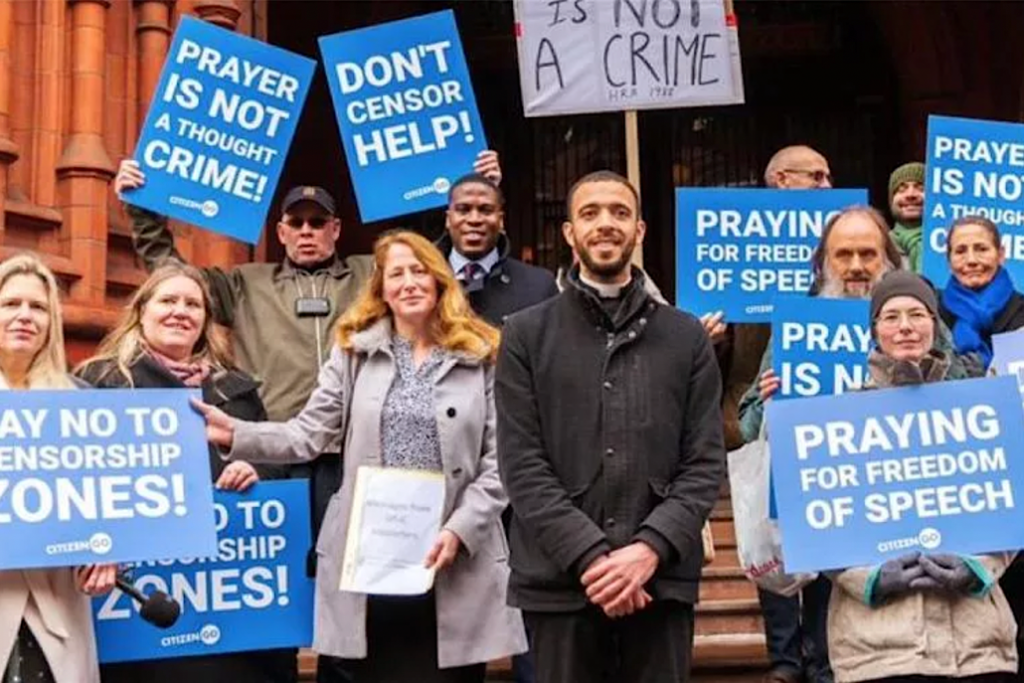
Vaughan-Spruce has expressed concern about her arrest, apparently for “silent praying”. After the verdict, she said she should never have been arrested and “treated like a criminal” for silently praying on a public street. “When it comes to censorship zones, peaceful prayer and attempts to offer help to women in crisis pregnancies,” she told a reporter from ADF International, such acts “are now being described as either ‘criminal’, ‘anti-social’.” We should bear in mind, however, that ADF’s full name, “Alliance Defending Freedom” is somewhat limited in its definition of freedom, being an ultra-conservative American Christian legal advocacy group, working to curtail rights for LGBTQI people, as well as to expand Christian practices within public schools and in government, as well as to outlaw abortion entirely. Based in Scottsdale, Arizona, it also has a branch office in Washington, D.C. So, it is not what might be called a politically or socially neutral body. The “freedom” it supposedly upholds doesn’t include the rights of gay people of either gender, nor of transvestites. Speaking to ADF about the Public Spaces Protection Orders and her arrest, Vaughan-Spruce is quoted as saying: “We must stand firm against this and ensure that these most fundamental freedoms are protected, and that all our laws reflect this.” But, of course, one person’s freedom may be someone else’s suppression. Having been arrested once, one might imagine she had learned her lesson. She has been back, however, doing it again, and far from just anonymously praying, this time she brought a photographer to record the event so that a record of it can be circulated to other anti-abortion groups. That clearly makes this act a deliberate breach of the law wih the intention to encourage others to do the same.
Fr. Sean Gough remained silent after he and Vaughan-Spruce were cleared by magistrates, although he had held up a sign in the zone reading “praying for free speech”. One must assume he didn’t mean free speech about LTBQI issues, although he didn’t say so. What he did say was: “I call on the government to look into the overwhelming positive work that pro-life groups do to support vulnerable women at their point of need, before censoring the streets of the UK and allowing good people to be criminalised for acts of love.” Members of the LGBTQI community might argue that that is exactly what the group is seeking to do to them. The acceptable definition of love may need updating. They didn’t ask to be gay and very few would dream of transvestism if it were not for an inner desire to dress and act that way.

Mind you, if it became illegal just to think of carrying out criminal acts, the British police would have to block off access to the streets around Westminster and Downing Street. In the light of recent news stories, it seems likely that quite a few members of the public, on seeing MPs and ministers walking about, might have harboured quite murderous thoughts about some of them. It’s worth recalling the nonsensical motto of Ingsoc, quoted in Orwell’s “1984” and followed by the hollow-eyed and subservient citizens of Oceania:
“War is peace. Freedom is slavery. Ignorance is strength.”
It seems to come close to how Vladimir Putin would like the citizens of Russia and its dependencies to believe. But I would hazard a guess that not many of us would be keen to bow down to such tyrannical laws. Some of Putin’s followers may, however.
| HANDCUFFS ON THE BRAIN?
Is it even possible to use chains and padlocks on how people think? Plato’s theory of the soul suggests it may be possible, at least in principle. Heaven knows where the key would fit to unlock it. An ear or a nostril, perhaps? Plato’s beliefs were inspired by the teachings of Socrates, and he was convinced that it’s the “essence” of people that makes them behave in a particular way.
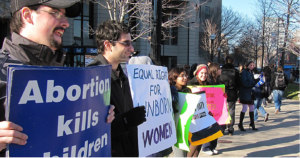
He believed that this “essence” is a very real part of their being and that it continues to exist after death (although I don’t believe he came back from the dead to confirm this). The ‘soul’ he argued remains capable of thought after death and that it would be reborn in other bodies. Reincarnation, I suppose we would call it, although he didn’t call it that himself. Among philosophers (and there have been many) Socrates was the first, it seems, to think that the soul continues to exist after death, and to think for itself. The rebirth of the soul was referred to as “metempsychosis”. Plato divided the soul into three parts: “logistikon”(reason), “thymoeides” (spirit), and “epithymetikon” (appetite). It seems that no-one before Plato had believed the soul to be the source of both life itself and also the underlying the mind. Plato clearly believed that the soul bears full responsibility for any actions. The book in which he points out this aspect of his philosophy, something that crops up in both his “Laws” and in “Phaedrus”, still puzzles philosophers today. I’m sure he’d be delighted to think of the head-scratching he’s caused to thinkers more than two thousand years later!
If we could be arrested for what we’re thinking, there could be quite an amusing list of charges. “Looking at the picture of the glamour girl in my morning newspaper and thinking improper thoughts”, for instance, or “dreaming of setting about my boss with a hatchet” or how about “wondering if I could dig a hole in my garden big enough to conceal my neighbour’s thuggish son after I’ve strangled him, along with his awful music player”? Similarly, it cannot be justice, surely (although some may disagree), to jail some middle aged or elderly man for trying to picture in his mind his neighbour’s teenage daughter wearing a bikini (or less)? I’m sure you could come up with lots of similar thought crimes if you tried. The thing is, we cannot always be thinking perfectly innocent thoughts about everyone, however annoying they may be. We shouldn’t have to, either. In many cases, the thoughts themselves may have been prompted by dreams, over which we have no control.
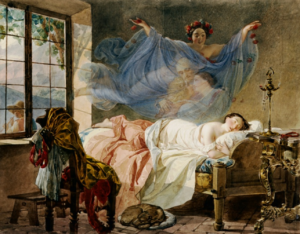
I’m sure you’ve had unpleasant dreams, some of which may have involved you taking some sort of action that in reality you never would. Some unlucky souls have ambulatory dreams: sleep walking and other activities undertaken whilst completely asleep. I’ve been lucky: as a young child I often had dreams involving movement, and fairly pointless movement, too. On one occasion, while on a family holiday in the English Lake District, I woke up with my feet on the pillow and my hands and head buried deeply in the bedclothes at the foot of the bed. What Plato would have made of it I have no idea. I didn’t suffocate, so I suppose I must count it as a plus.
According to the website “The List”: “Whether it feels like you dream every night or you rarely dream at all, everybody does it”. In fact, according to Medical News Today, most people dream between three and six times every night, with each mini-movie only lasting five to 20 minutes. However, despite the fact that we are all constantly dreaming, around 95% of dreams have already been forgotten by the time a person rolls out of bed.” Thinking about the very few I can remember, I can only say how pleased I am that so many others have been forgotten before I wake up.
Just in case you are bothered by such things (please remember: dreams are NOT real!) there are websites to visit that seek to explain what’s been happening, such as https://www.auntyflo.com/dream-dictionary/crime, for instance. But I wouldn’t take it too seriously, if I were you, although its suggestions may work for some people. The time to worry is when you wake up from a bit of sleep-walking to find you’re in the underground vault of a city bank with an oxy-acetylene torch in your hand and the safe door hanging open. Convincing the armed police officers who’ve come to that it was nothing but a bad dream may prove difficult.
| INTIMIDATION OR FREE SPEECH?
There is no doubt, of course, that those attending an abortion facility are normally in a fragile state of mind. Nobody goes there full of cheer and glee, even if the result of the abortion may help to overcome an embarrassing, even job-threatening or marriage-threatening, problem. I should imagine that no woman wants to undergo an abortion, however unwanted or inconvenient the pregnancy may be.

It is not something to be taken lightly and it is never a frivolous matter. The woman involved knows that she is nurturing in her womb a human being, or at least a potential human being, a human child in potentia, so to speak. There is bound to be some sort of spiritual link, a bond of sorts, between the developing foetus and the woman whose body is nurturing it and in which her egg cells were fertilised by a man. If the procreative act was eight weeks earlier, then the legs of the foetus will already be getting longer, although parts of the leg, such as knees, ankles, thighs and toes have yet to develop. The foetus itself is still in the mother’s amniotic sac and the placenta has only just begun to form. The womb by this time will be roughly the size of a lemon. The foetus gets all of its nourishment at this stage from the mother’s yolk sac. It’s a complicated business, growing a baby to the point at which it’s ready to enter the big, wide, world. Abortions are supposed to be carried out before the pregnancy reaches the stage of 24 weeks. Women normally seek (or at least are offered) counselling before undergoing the procedure. It is clearly and very obviously not a decision to be taken lightly. It’s also one which the mother-to-be may later have cause to regret, and she knows that.
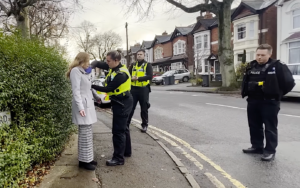
Given the fact that the woman is likely to be disturbed and unhappy, the last thing she needs, in all probability, is the sight of somebody with religious beliefs obviously praying, even if doing it silently. The presence of a minister of religion is also likely to be disturbing, suggesting a judgmental attitude without the judge in question knowing the circumstances. It’s worth recalling at this point that in the Birmingham case, the member of the clergy who was there, while completely opposed to abortion regardless of the reasons, is also linked to an organisation that is completely opposed to people who identify as LGBTI. In some American states abortion is already either illegal or as close to it as makes little difference. It’s strange how some politicians think they have the right of control over the body of a woman they don’t know and have never met, purely on moral grounds that they chose for themselves. But in the United States, that appears to be the case. Some ardent souls dismiss abortion, regardless of its motive, as simply murder. Oddly, they’re often the same people who support the notion of the death penalty. Murder by the state doesn’t count, it seems. In some states, though – take Colorado, for instance – there is a movement arguing that men should have no say in the legality of abortions, under the slogan “no uterus, no opinion”. It’s also true to say that many of those who are implacably opposed to abortion under any circumstances fail to take into account those that take place because of a serious fault with the foetus that will result in a baby that is simply not viable or that will face a life of pain and discomfort, or whose difficult existence will severely disadvantage other existing siblings.

For some people, however, the sanctity of human life tops any facts or other philosophical thoughts. Religious conservatives (and I certainly don’t mean just people who vote that way) believe in the sanctity of life because, they say, it was created by God who alone has the right to end it. They also tend to believe that humans were “created in his image”, without stipulating if that means that God looks Asian, European, African or whatever. The possible choice is a very wide range indeed and all can be beautiful, yet look totally unalike. Some might argue (and have) that it makes the argument nonsensical. In the Book of Genesis in the Christian Bible, it states that: “Whoever sheds human blood, by humans shall their blood be shed; for in the image of God has God made mankind.” That, of course, would mean that judicial executions are OK, although many would argue that it can’t be so. The problem is that as soon as anyone introduces religious beliefs into an argument it gets very convoluted and difficult, so I won’t go down that path, except to say that the existence or otherwise of God is almost certainly unprovable (except for those people who believe such things to be self-evident) and is purely a matter of personal opinion. It’s your choice.
| PHILOSOPHY OF DEATH
Plato was a big fan of fellow-philosopher Socrates, who was born slightly earlier than he was (469 BC instead of 429 BC). Indeed, it was Plato who described Socrates death as he was executed for impiety. It was Socrates who wrote: “It is never right to do wrong or to requite wrong with wrong, or when we suffer evil to defend ourselves by doing evil in return.” I presume that means that he would have been opposed to the application of the death penalty, although he remained stoical about the one that was imposed on him. They took philosophy really seriously back in those days.

But that brings us back to that case in Birmingham, in the UK, in which magistrates set free a woman suspected of praying in an area where it was forbidden. It was forbidden because it was felt that women attending an abortion facility were vulnerable to attempts by those convinced that they’re always right to bully them into changing their minds. Isabel Vaughan-Spruce was a long-term pro-life activist, known to police and she admitted she “might have been praying”. Prayer is not, of course, illegal, but doing so in an obvious manner in a zone in which anti-abortion protests are banned is. She has protested that the creation of anti-protest zones is against free speech.
Presumably that’s why she returned to the scene on behalf of her “March for Life” anti-abortion group and on several occasions visited the clinic, knowing it would be illegal to do so. She told the policeman attending the action that she was “not protesting” and “not engaging in any of the activities prohibited”. Her bail conditions prevent her from going near the abortion facility. Rachel Clarke, Chief of Staff at the British Pregnancy Advisory Service in Birmingham. said that Vaughan-Spruce “has visited the clinic several times in full knowledge that she is breaching the safe access zone around it.” Vaughan-Spruce told the court that at her previous court appearance, “It was made clear by the court that my silent prayers were not a crime, and yet again I have been arrested.”
The presence of her photographer may have had something to do with that.
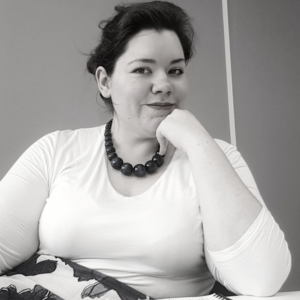
It could be argued that pregnant women who are already suffering crises of conscience don’t need the complication caused by pro-life activists. Fr. Gough has said that: “whatever your views are on abortion, we should be able to agree that in a democratic country we should not be in the business of prosecuting thought crimes.” Standing very visibly in a place you’re not allowed to be is a rather different matter. Father Gough has called on his supporters to defend what he called “these most fundamental freedoms” that new legislation may erect more barriers to protest.
I am reminded irresistibly of a 1956 song which featured in a musical by Frank Loesser called “The Most Happy Fella” and was released as a single by a group called The Four Lads. The song itself would probably not meet with the approval of either of the defendants or their supporters, being called “Standing on a Corner, Watching All the Girls Go By”. The song urges male listeners to head down to main street and stand, watching young women walk past, dreaming possibly rather naughty dreams. The last verse contains words that apply strongly to this case: “Brother, you can’t go to jail for what you’re thinking, Or for that woo look in your eye.” Some of the young women thus gazed upon lustfully by men with nothing better to do may wish that jail could be an option in this case but thinking about things is not the same as doing them, so Vaughan-Spruce and Gough remain free to go on thinking about how to prevent abortions, but not ostentatiously, nor in public close to an abortion facility. The patients have enough to worry about without them.

